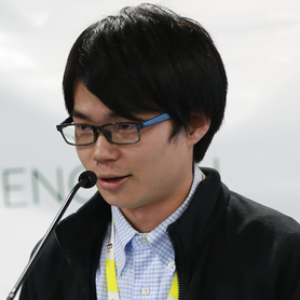Title : Genomic structural variation in the self-incompatibility locus causes a transition from outcrossing to selfing in amphidiploid Arabidopsis kamchatica
Abstract:
Self-incompatibility (SI) is a sophisticated mechanism for pollen selectivity to prevent self- fertilisation and is genetically regulated by two genes located in S-locus. S-locus receptor kinase (SRK) and S-locus cysteine rich protein (SCR) is female and male specificity genes, respectively, and physical interaction of these S determinant factors triggers the downstream signalling cascade and subsequently causes a rejection of self-pollen. Arabidopsis kamchatica is amphidiploid plant species originated from a natural cross between A. lyrata and A. helleri. While parental diploid species have SI, A. kamchatica is a self-compatible species, predictively due to a loss of function in the SI system. To elucidate why A. kamchatica does not have a SI system, we attempt to reveal two S-locus genomic structures in A. kamchatica, one from A. lyrata and other form A. helleri, using two types of Next Generation Sequencing technologies, the Ion Proton (Thermo Fisher) and the MinION (Nanopore) systems. Because an amphidiploid plant genome has a high similarity in homoeologous genomic regions which originated from each parental genome, we manually curated two independent S-locus contigs, one from A. lyrata and other form A. helleri, using CLC Gnomic Workbench 11. By several bioinformatics analyses, we obtained two S-locus sequences separately and found critical mutations in the S-specificity genes in both S-loci. This result suggests that self-compatibility in A. kamchatica is caused by disruptive mutations in the S-specificity genes and the genomic structure of S-locus would reflect a process of breakdown of SI and evolutional transition history of mating system, from SI to selfing mode in A. kamchatica.



